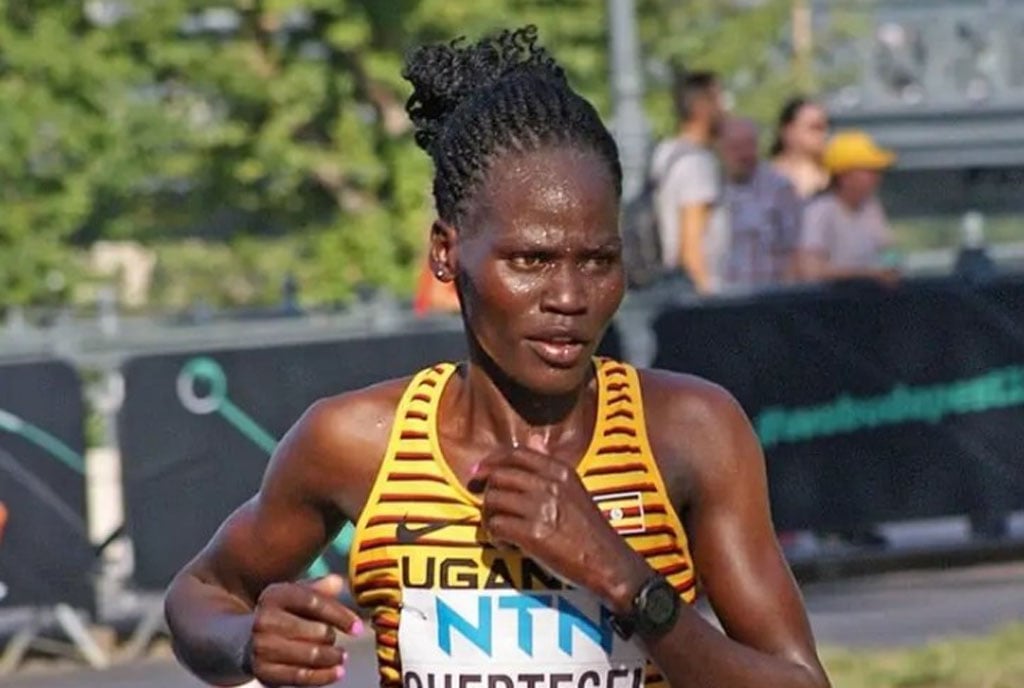Prime
Acholi chief demands govt support for LRA war victims

Acholi Paramount Chief David Onen Acana II (left) speaks at the homecoming party organised by the State Minister Northern Uganda, Dr Kenneth Omona (right), in Gulu City on May 31, 2024. PHOTO/TOBBIAS JOLLY OWINY
What you need to know:
- In 2014, the Refugee Law Project (RLP) published a report, citing how the National Resistance Army (NRA) soldiers—now Uganda People’s Defence Forces (UPDF)—allegedly raped men between the late 1980s and early 1990s in the region.
Acholi Paramount Chief David Onen Acana II has challenged the government to consider urgent support for a group of men he claims are victims of sexual violence perpetrated during the war in the region between 1987 and 1992.
Rwot Acana was speaking in Gulu City on Friday at the homecoming party for the new State Minister for Northern Uganda, Dr Kenneth Olusegun Omona.
Addressing the Prime Minister, Ms Robinah Nabbanja, who was the chief guest, Rwot Acana said the victims were dying as the government looked on.
However, he did not state whether the male victims were sodomised by the government soldiers or the Lord’s Resistance Army (LRA) rebels.
“It is disheartening to believe that at this time, in our lives, we still have people who have been raped during the war in northern Uganda, especially in the Acholi Sub-region, and these are male victims who are still leaving in very wanting conditions,” he said.
He claimed that most of them are unable to take care of their medical bills while their conditions deteriorate day by day.
“I met some of them, and they told me because of their raptured anuses, they have had to spend most of the time lying down instead of sitting since they were sodomised, and these are people who seem to have been forgotten, and there are so many others,” Rwot Acana said.
“I even wrote a letter to the President, and they were raped in the period between 1987 and 1992,” he added.
Rwot Acana asked the government to hasten the passing of the Transitional Justice Policy Bill and the rollout of the Northern Uganda Social Action Fund 4 (NUSAF 4), which will ensure such victims of sexual violence are accommodated and supported.
“I request your (OPM) office and the government to look seriously into this problem and give proper support to these war victims. We, the leaders on the ground, continue to experience the people’s problems every day, and some of them are too painful, yet you can’t do anything,” he said.
In her speech, Ms Nabbanja admitted that the region continues to endure the scars of war but stressed that the upcoming NUSAF 4 will not tackle anything outside the livelihood support to communities in the region.
“Northern Uganda endured the ravages of war, and scars are still very visible, as explained by the Paramount Chief. However, we are in the process of introducing NUSAF 4. The President guided us, and he told us only to focus on the livelihood of the people,” she said.
Government pledge
“We are not going to construct schools, we are not going to build health centres, among others, but we are going to inject money into our people. The President has insisted that the programme (NUSAF 4) should focus on intensive agriculture if we are to move our people from the low-income status to at least somewhere,” he added.
Dr Omona’s homecoming ceremony was also attended by Chief Justice Alfonse Owiny-Dollo, Government Chief Whip Denis Hamson Obua, MPs from across the region, local government, religious and cultural leaders, among others.
Looking back
In 2014, the Refugee Law Project (RLP) published a report, citing how the National Resistance Army (NRA) soldiers—now Uganda People’s Defence Forces (UPDF)—allegedly raped men between the late 1980s and early 1990s in the region.
According to the report, the victims were accused of being former Uganda National Liberation Army (UNLA) soldiers who regrouped to form the Uganda People’s Democratic Army (UPDA) in the Acholi Sub-region in protest of the brutality mounted by the NRA forces a few years upon capturing power.
The violence, it said, did not spare those accused of being collaborators of the UPDA that collapsed in 1988 following a peace pact it signed with the government in Gulu at Pece Stadium.




